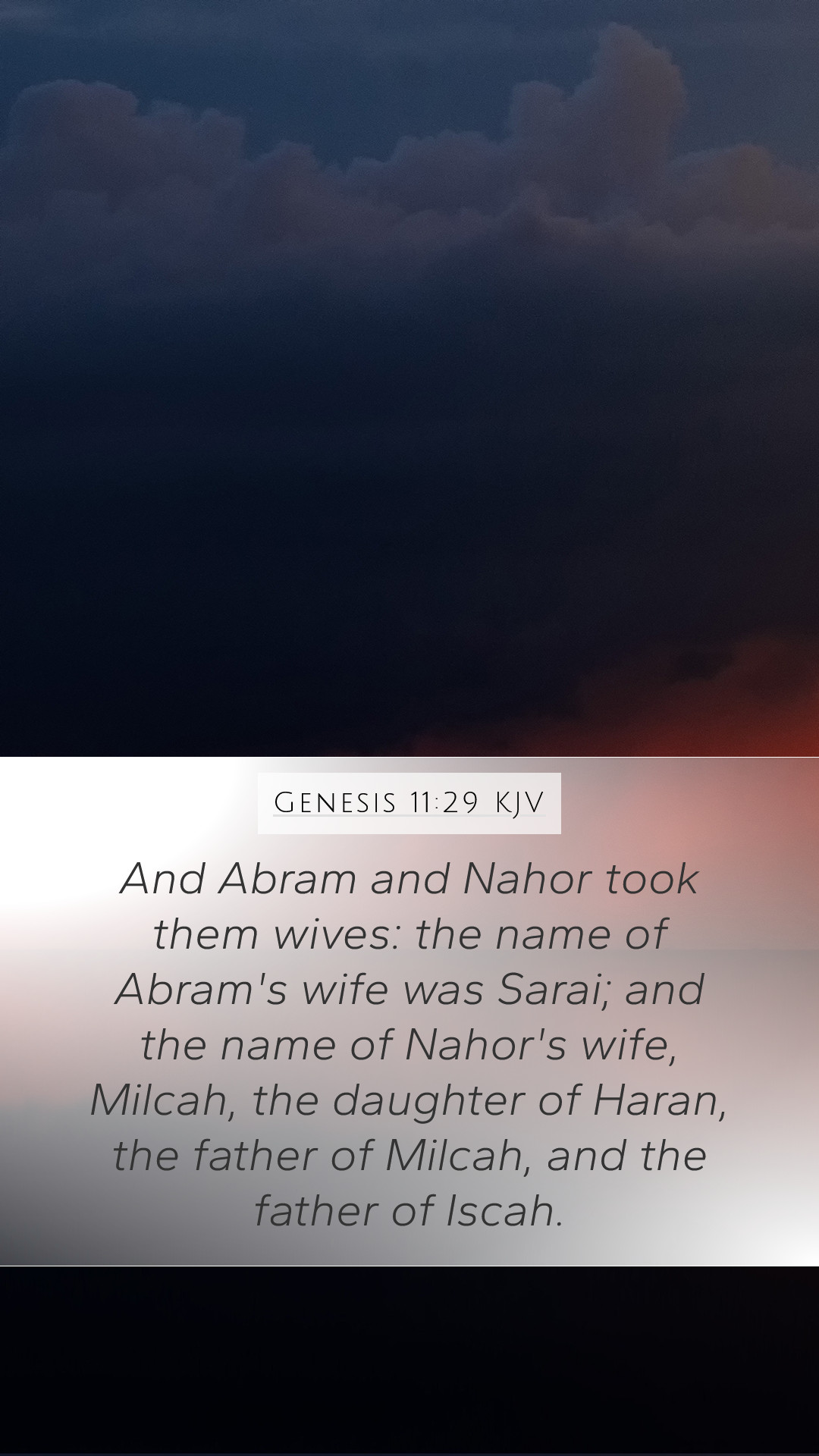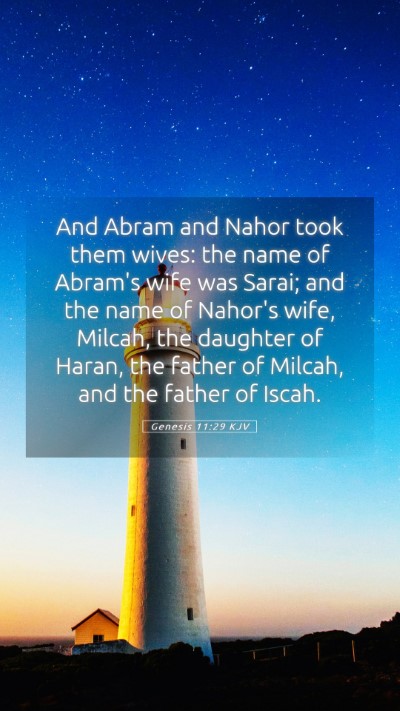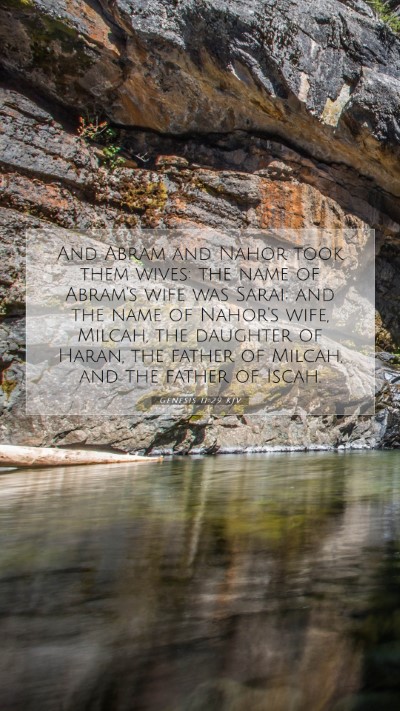Understanding Genesis 11:29
Genesis 11:29 states:
"And Abram and Nahor took them wives: the name of Abram's wife was Sarai, and the name of Nahor's wife, Milcah, the daughter of Haran, the father of Milcah, and the father of Iscah."
This passage introduces significant figures in biblical history and highlights important familial connections that set the stage for the narrative of Abram, later known as Abraham, who played a crucial role in the unfolding of God's covenant with His people. Let's delve into the meaning of this verse and its implications.
Verse Context and Significance
The context of Genesis 11:29 is vital for a comprehensive understanding. This chapter occurs after the events of the Tower of Babel and illustrates God’s purpose in calling Abram to a covenantal relationship. It emphasizes the importance of genealogy in Scripture, showing the line through which God's promises would be fulfilled.
Key Insights from Commentaries
-
Matthew Henry's Commentary:
Henry notes the significance of family and relationships in this verse. He suggests that God often works through familial lines, which are central to His plans. The mention of Sarai and Milcah introduces key players in the biblical narrative that affects subsequent events dramatically.
-
Albert Barnes' Notes:
Barnes emphasizes the cultural context of marriage in the ancient world, where family lineage was essential. He highlights the fact that Sarai, later known as Sarah, is introduced here, signifying her importance in the Abrahamic covenant.
-
Adam Clarke's Commentary:
Clarke provides insight on the familial relationships and their genealogical significance. He points out that Haran, mentioned as the father of Milcah, connects Abram’s lineage to the broader narrative of God's chosen people. Clarke also reflects on the implications of these marriages in amplifying the significance of Abram's lineage in future biblical events.
Historical Context of the Verse
This passage occurs in a pivotal time just after the flood narrative and the confusion of language. The genealogy is significant in establishing God's chosen people through Abraham. Understanding the historical context of Genesis is crucial for interpreting these verses correctly.
Biblical Exegesis and Theological Implications
From a theological standpoint, Genesis 11:29 illustrates God's intentionality in human history and the way He weaves together family and faith. The mention of Abram's choice of a wife also signifies individual agency in God's larger plan, foreshadowing the critical decisions that will impact God's covenant with Israel.
Application of the Verse in Contemporary Life
For modern readers, Genesis 11:29 can be seen as a reminder of the importance of relationships, family, and community. It sets a precedent for understanding God's work within families today, highlighting that personal decisions and relationships significantly impact God's plans for us.
Cross References
- Genesis 12:1-3 - God's call to Abram
- Genesis 17:15-16 - God's covenant with Abraham regarding Sarah
- Genesis 22:2 - God's command concerning the sacrifice of Isaac
Conclusion
Genesis 11:29 carries rich meaning as it introduces pivotal characters and their significance within the biblical narrative. Through Biblical commentaries, we garner valuable insights that enhance our Bible study insights and understanding of Scripture. It emphasizes the relational aspect of faith and community in God’s redemptive plan.
For those engaged in Bible study groups or seeking online Bible study resources, engaging with these interpretative insights can deepen your Bible verse understanding and enrich your analysis of similar passages.


